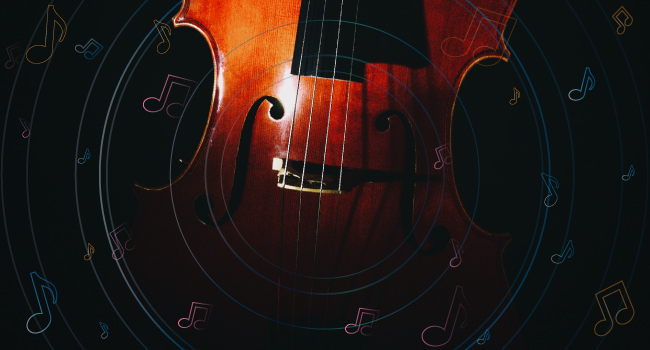Published on 01 Sep 2020 | Topics: #GreatAytonNews
We asked Great Ayton based Musical Director Jeremy Harbottle for a personal perspective about the impact of lockdown on the creative arts and inspiring the next generation.

The arts, health and social benefits
Music, art and dance undoubtedly have huge benefits on mental and physical health. Singing or playing a woodwind or brass instrument facilitates deep breathing, and is known to have profound mental and physical health benefits. Playing of movement based instruments such as strings, or dancing provides physical movement which can benefit health in similar ways, while art and the creation of art is often associated with calmness and serenity.
But what all of these frequently have in common is the sense of fellowship and community created within the social groups that they form when you are either learning, rehearsing or performing these activities communally. For example, from a personal perspective, the choirs under my direction, as well as practising during a rehearsal, will have a generous tea/coffee break, using that time to socialise, reinforcing the sense of community spirit that benefits us all so much, especially at difficult times in our lives. It’s also important to remember the immeasurable guidance and inspiration brought to young people by their music teachers during their formative years.
You'll Never Walk Alone - for 4 cellos and piano - Jeremy Harbottle
The arrival of lockdown
It’s therefore a rather bitter irony that the lockdown brought to us by the coronavirus has threatened to strip away many of the things that would help us the most during such a difficult time, with all UK choirs, dance groups sports clubs and so many other activity based groups being prevented from assembling on the grounds of safety. Face to face music lessons were also brought to a complete halt.
Technology to the rescue! However, all was not lost, thanks to the benefits of modern computers, tablets, phones and webcams, with many activities not only managing to continue, but in some cases flourish under the newly imposed circumstances! Musicians, choirs and ensembles used their phones, tablets and computers to make all manner of “virtual performances”, some hilarious, some deeply moving. In the same way, video link via the internet enabled many music lessons to continue, and while there are the obvious limitations brought to the lessons by time delay and reduced sound quality, there was surprisingly (I say this from my personal perspective) very often a feeling of increased focus during the lesson, as well as parents having far greater opportunity to witness, and even interact with the lessons. This extra parental support brought its own benefits to the mechanisms which support continued learning and was an opportunity to build rapport with parents that would have not otherwise been possible!
Looking to the future
In the short term, I, as well as many other musicians and musical directors, intend to further utilise technology to produce internet based musical performances on a larger scale and streaming them, hopefully allowing choirs and orchestras to interact with the public in as meaningful a way as possible. For example, I will shortly be producing a joint choirs virtual performance with music from members of VOX choir, The Angrove Singers, Stokesley Choral Society, and The Nunthorpe Singers. (watch this space!).
However, while those who are conversant with social media and media technology have been able to reap these benefits, many aren’t as confident with it. As well as this, it is still no substitute for meeting up in person, so many audiences and performers alike are longing for the return of some sort of normality as soon as possible.
In the scenario that there is a marked improvement in the situation, or even vaccine as many are hoping for, then not only would we be able to resume our much missed activities, rehearsals and concerts, but we could compliment and enrich them further with the added benefits that the use of technology, and what we have learned about that, can bring to the equation. Be that in producing material to better raise public awareness of ensembles, or to provide additional means by which the public can hear ensembles they may not otherwise be able to see in person.
If there isn’t, then in terms of the performing arts, we may have to further adapt to and embrace the new methods of virtual concert production and video based rehearsing and teaching with which we are becoming familiar.
Either which way, we can employ a lot of what we are learning from this situation and the use of technology, to showcase up-to-date, relevant material, and provide online musical activities to engage, encourage and inspire the youth of today to be the musicians and performers of tomorrow.
Nelly The Elephant meets the Cellosaurus - With Jeremy Harbottle on cello
Article and videos courtesy of Jeremy Harbottle - Musical Director.